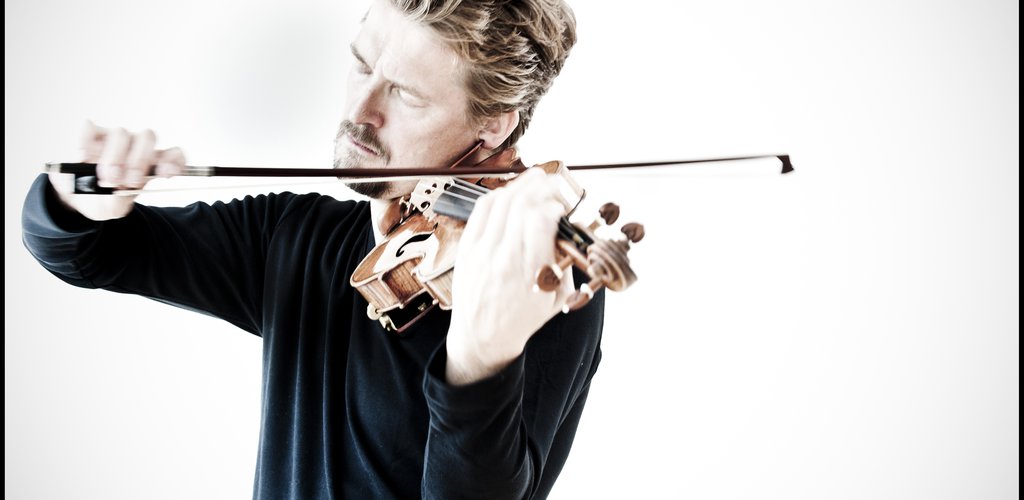In January you are going to play Dvořák’s Violin Concerto in A minor with the Festival Orchestra in Budapest. You must know a lot about this work, and maybe you have an answer to why the Hungarian-born violinist József Joachim, Dvořák’s dedicatee, did not welcome it with real enthusiasm?
Christian Tetzlaff: Of course! I know a lot about it, since it is truly a curious episode in European music history. Joachim was an excellent interpreter of many of the age’s most significant composers. Many of those composers performed their compositions themselves, and only rarely enlisted the aid of another artist. And when they did so, more often than not that artist was the great Hungarian-born József Joachim. This is also what Dvořák did, but Joachim refused to play his piece. However, I’m not certain whether this was merely Joachim displaying his dislike for the concerto; it is claimed that his jealousy towards Dvořák also played a role. Joachim held Brahms in high regard; an opinion which he voiced on several occasions. In the weeks prior to this, he had just performed Brahms’ new violin concerto and he praised it publicly. It was at this time that Dvořák completed his concerto in A minor, which Brahms then praised to the heavens. Joachim did not take well to that. He was particularly hurt by the ease with which Dvořák composed, which he, as a performer, could not always cope with. Furthermore, this violin concerto – as beautiful as it is – is not at all easy to perform for the soloist.
What makes it so difficult?
Ch. T.: Strangely, in spite of the aforementioned airiness, it is technically highly challenging. The first two movements begin very uncomfortably.
What do you mean by uncomfortably?
Ch. T.: The music doesn’t really begin, for a while it’s only about virtuosic hand movements that address the body and not the ear. And after that, the entire long movement goes by without a single rest or breath mark. The second and third movements are just as intensively challenging for the soloist. And all the while, the composer has employed a number of tricky solutions that need to be played with extreme caution and great care in order to interpret them appropriately. But come to think of it, many composers could face similar charges, so none of the problems I mentioned are cardinal. Yet in spite of all this, Joachim went through the piece and found a lot of erroneous parts. This soured their relationship.
How much do you feel of the discomfort that Joachim mentioned in the 1870s?
Ch. T.: Look, I’ve been playing this piece for 30 years now, so you can imagine how intimately familiar I’ve grown with it. I have got used to all its difficulties. I recently made my second recording of it, and I can comfortably say that I feel it is one of the compositions that I hold closest to my heart. Maybe the fact that it is not part of the standard classical repertoire also helps explain why I am so fond of it. Even today, most violinists are a little afraid of the piece. A sentiment I most certainly do not share.
Jukka-Pekka Saraste will be conducting the Festival Orchestra for the Budapest concert. You know each other well. What is it like to be playing with him?
Ch. T.: I first performed with Saraste thirty-two years ago, on a tour of London during which we played Mozart together. Since then we have met regularly through various orchestras all around the world. When he was director of the Toronto Symphony Orchestra I performed with them several times, and now the WDR Symphony Orchestra of Cologne has invited both of us on tour. I love to meet those old musician friends again and again; with them, whenever we meet and play together, we can by-and-large understand each other’s thoughts well. He, like myself and like musicians in general, travels around the world rather whimsically, and when we run into each other we feel a little bit at home. On top of that, by chance we both went through serious life crises at around the same time, and when recently we produced a beautiful Beethoven series together we both felt it helped us through our ordeals.
If you had to describe Saraste’s personality, what would be the most important thing you’d emphasise?
Ch. T.: That below the surface he is a smouldering volcano.
Interesting, that is what they usually say about you!
Ch. T.: (laughs) See, maybe that’s why we’re so close. We both have similar views on music, which means we both feel that we have to put our entire beings into a performance. Only that way will the audience feel what a composition is truly about, only then will they truly become one with its emotions. We like to agitate, to move, to shake up the audience with the help of music. Our job is to bring the hearts of the composer and of the audience as close to each other as possible.
You know the Budapest Festival Orchestra very well. What do you think of them?
Ch. T.: This is going to be my eighth time performing with them. I respect them very much. Exactly because of what I said before. They take their job very, very seriously, and strive with all their might to bring the audience as close to the music as they can.


